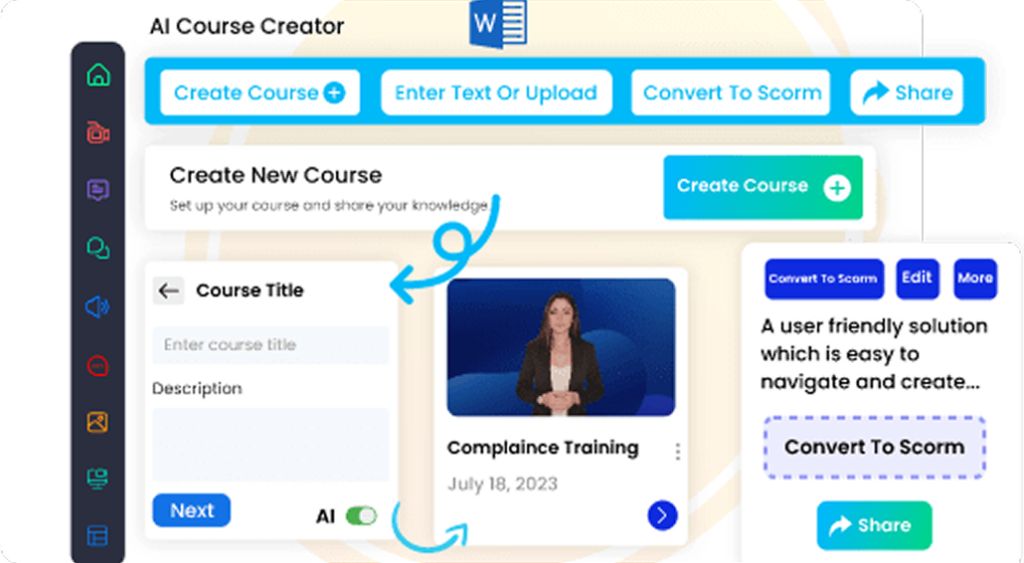Change management training for employees is crucial for organizations looking to navigate the evolving landscape of modern business. This 2025 guide will cover key aspects of change management training, why it’s necessary, and how to implement Change Management Essentials effectively across your workplace. Whether you’re looking for a change management course or a more tailored solution, this guide will provide practical insights.
What is Change Management Training?
Change management training equips employees with the skills and knowledge necessary to navigate organizational change. It focuses on building resilience, understanding the psychological impacts of change, and aligning teams with company goals. By providing change management training for employees, organizations ensure that their workforce can adapt to new processes, technologies, and leadership strategies without disruption.
The Importance of Change Management Training in 2025
In 2025, businesses are evolving faster than ever before. Whether driven by new technologies, market shifts, or internal restructures, these changes often disrupt established processes. The pace of change can overwhelm employees who are not adequately prepared. This is where change management training plays a vital role. It ensures that employees are equipped with the right tools, strategies, and mindset to handle transformations smoothly, increasing productivity and fostering a more adaptable organizational culture.
Key Components of Change Management Training
Successful change management training integrates several key components to ensure its effectiveness:
1. Understanding Organizational Change
Employees must first understand why the change is occurring, how it will affect the organization, and their role in the transformation process. Clear communication about the Change Management Essentials helps employees embrace the change rather than resist it. This foundation helps employees see the bigger picture, making them feel more in control of the situation.
2. Emotional and Psychological Support
Change can create anxiety, stress, and uncertainty. Offering emotional and psychological support through training sessions helps employees manage these feelings and stay engaged in the process. This support can include coaching, peer networks, and access to counselors to help individuals cope with the mental challenges that accompany workplace change.
3. Leadership and Stakeholder Alignment
Leaders must be aligned with the change vision and effectively communicate it to employees. Change management training equips leaders with the skills to support their teams, foster trust, and maintain momentum. Leaders must serve as role models, demonstrating positive behaviors during transitions and actively engaging with employees to build a collective vision.
Learning Built Around Your Goals.
Discover how our courses can align with your training goals and drive real results.
How to Implement Change Management Training at Work
Implementing change management training effectively requires a structured approach:
1. Assess Training Needs
Start by identifying the specific needs of your workforce. Conduct surveys, focus groups, or interviews to understand the gaps in employees’ change readiness and the specific areas they need help with. Assess the current level of understanding and comfort with change within the organization, and identify which teams or departments may require more tailored training.
2. Select a Suitable Change Management Course
Choosing the right change management course is vital. Look for a course that offers practical, real-world applications and is tailored to your organization’s needs. Whether you choose a general course or a more customized program, ensure that it includes the essential elements of change management, such as the development of coping strategies, stakeholder management, and clear communication frameworks.
Not sure where to begin? Explore our course catalog to find customizable change management training programs designed to fit your organization’s needs.”
3. Deliver Training through Various Formats
To accommodate different learning styles, offer a blend of online courses, in-person workshops, and on-the-job learning. Interactive elements such as case studies, simulations, and role-playing exercises are effective in reinforcing the material. Additionally, microlearning can be used for quick, focused lessons on specific change management skills, ensuring knowledge is reinforced over time.
4. Monitor Progress and Provide Ongoing Support
Change doesn’t happen overnight. Continue to provide support even after the training is completed. Monitoring progress through feedback, surveys, and performance metrics can help track the effectiveness of the training and identify areas for improvement. Creating a continuous feedback loop where employees can voice concerns and ask questions can enhance the training’s longevity and impact.
The Benefits of Change Management Training for Employees
Investing in change management training for employees offers numerous benefits to organizations, including:
1. Increased Employee Engagement
When employees feel supported during change, they are more likely to stay engaged and committed to their roles. Effective change management training ensures that employees feel confident and capable of handling new challenges. This engagement is directly linked to higher retention rates and a positive company culture.
2. Enhanced Productivity
Employees who understand and accept change are more productive. By reducing resistance and confusion, training allows employees to focus on their work rather than the disruptions caused by change. With the proper tools, employees can quickly adapt to new systems or processes, minimizing downtime and maximizing efficiency.
3. Reduced Turnover
Organizations that provide change management training tend to have lower turnover rates. Employees are more likely to stay with a company that invests in their personal development and helps them manage transitions effectively. This investment in training creates a loyal and stable workforce that is better equipped to adapt to future challenges.
4. Improved Organizational Flexibility
Organizations that invest in change management training are better able to adapt to market shifts and external pressures. Employees are not only prepared for change but also develop an adaptive mindset that promotes agility and resilience across the organization. This increased flexibility allows companies to respond more effectively to unforeseen challenges and opportunities.
Future Trends in Change Management Training
As businesses continue to evolve, change management training will adapt to meet new challenges. Future trends include:
1. Increased Use of AI in Training
Artificial intelligence (AI) will play a bigger role in personalized change management training, offering tailored learning experiences based on individual employee needs. AI-powered platforms can analyze an employee’s learning progress, suggest additional resources, and even predict challenges that may arise during the transition.
2. Virtual Reality (VR) and Augmented Reality (AR)
VR and AR technologies are set to enhance change management training by offering immersive, interactive environments that simulate real-world change scenarios. These technologies will allow employees to experience change in a controlled virtual space, building skills and confidence before facing real-world changes.
3. Ongoing Learning and Development
Organizations will shift towards continuous change management training, focusing on developing employees’ resilience to change as part of their long-term career development plans. This approach ensures that change management remains a key part of an employee’s personal and professional growth journey, rather than a one-time event.
How CogniSpark AI Strengthens Change Management Training
In 2025, where agility and adaptability are core to business success, CogniSpark AI offers a modern solution to Change Management Training—empowering employees to embrace transitions with confidence and resilience.
Through its AI-powered learning paths and scenario-based simulations, CogniSpark helps employees understand the human side of change—navigating resistance, adapting mindsets, and building collaborative support. Its real-time AI Tutor delivers personalized guidance, helping learners internalize change frameworks and apply them in everyday work situations.
CogniSpark’s intuitive authoring tool allows organizations to design and update content that reflects company-specific transformations, whether it’s restructuring, digital transformation, or cultural shifts. The platform also supports LMS integration for seamless deployment and progress tracking across teams.
By making change management training interactive, scalable, and people-centric, CogniSpark AI enables businesses to turn disruption into opportunity—arming teams with the skills to lead and thrive through any transformation.
Conclusion
In conclusion, change management training for employees is an essential strategy for any organization looking to thrive in 2025 and beyond. By providing the necessary tools and skills for employees to manage change, organizations can reduce resistance, increase engagement, and boost productivity. Whether through a change management course or an in-house program, investing in training is investing in your company’s future success.
Access 100+ fully editable, SCORM-compatible courses featuring an integrated AI Tutor and an in-built authoring tool. Seamlessly compatible with any LMS, these courses are designed to elevate your training programs.
Explore Our eLearning Course Catalog






















